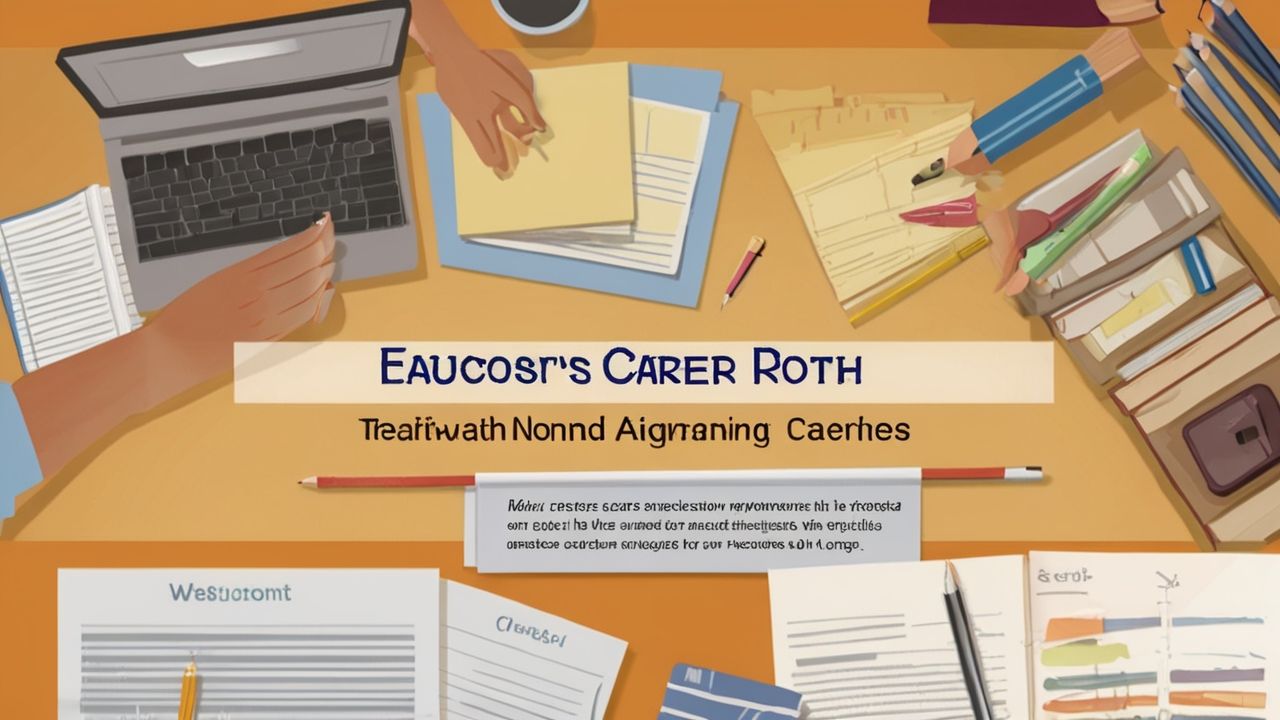Right Career Choice at the Right Time in Education or Choosing the right career path is one of the most significant decisions individuals face in their lifetime. In the field of education, this decision carries even greater weight, as it impacts not only the individual but also the future generations they will influence. Making the right career choice at the right time in education involves a combination of self-awareness, market awareness, and an understanding of personal and professional aspirations.
Understanding the Importance of Timing
Timing plays a crucial role in career choice. The education sector is dynamic, influenced by technological advancements, policy changes, and evolving societal needs. Recognizing and aligning with these changes can lead to a fulfilling and successful career. For instance, the rise of digital learning platforms and the increasing demand for STEM (Science, Technology, Engineering, and Mathematics) education highlight specific areas where opportunities are growing. Making a career choice that aligns with these trends can provide job security and growth potential.

Self-Assessment and Career Alignment
Before making a career choice, individuals must engage in thorough self-assessment. This process involves evaluating personal interests, strengths, and values. For educators, passion for teaching, patience, and the ability to inspire and engage students are critical traits. Additionally, understanding one’s preferred working environment, whether it be a traditional classroom, online teaching, or educational administration, is essential.
Self-assessment tools, such as personality tests and career aptitude assessments, can provide valuable insights. For example, an individual with a passion for technology and innovation might find a fulfilling career as an educational technologist or an e-learning specialist. Conversely, someone with strong leadership skills and a vision for educational reform might thrive in a role as an educational administrator or policy maker.
Market Awareness and Opportunities
Staying informed about market trends and opportunities is vital for making an informed career choice. The education sector offers a wide range of career paths, from teaching and counseling to administrative and support roles. Each of these paths requires different skills and qualifications. Understanding the demand for various roles and the qualifications needed can guide individuals toward a career that offers stability and growth.
For instance, the increasing focus on inclusive education has created a demand for special education teachers. Those interested in this field should pursue relevant qualifications and training to meet this need. Similarly, the growing importance of mental health in education has highlighted the need for school counselors and psychologists. By aligning career choices with these emerging opportunities, individuals can ensure they are entering a field with strong prospects.
Professional Development and Lifelong Learning
The education sector values continuous learning and professional development. Making the right career choice involves committing to ongoing education and skill enhancement. Educators should seek opportunities for professional development through workshops, courses, and advanced degrees. This commitment not only enhances their skills but also demonstrates a dedication to their profession.
For example, a teacher aspiring to become a school principal should pursue a master’s degree in educational leadership or administration. Additionally, participating in professional organizations and attending conferences can provide valuable networking opportunities and exposure to the latest trends and best practices in education.
Flexibility and Adaptability
The ability to adapt to changing circumstances is a crucial trait for success in any career, particularly in education. The COVID-19 pandemic underscored the importance of flexibility, as educators had to quickly transition to online teaching. Those who were adaptable and willing to learn new technologies were able to continue providing quality education to their students.
Choosing a career in education requires an understanding that the field is constantly evolving. New teaching methods, technologies, and educational policies will continue to emerge. Educators who embrace change and seek out opportunities for growth and innovation will be better positioned to succeed in their careers.
The Impact of Mentorship and Networking
Mentorship and networking play a significant role in making the right career choice in education. Experienced mentors can provide guidance, support, and insights into the realities of various career paths. They can help individuals navigate challenges, identify opportunities, and make informed decisions.
Networking with professionals in the education sector can also open doors to new opportunities. Attending conferences, joining professional organizations, and participating in online forums can connect individuals with like-minded professionals and potential employers. These connections can provide valuable advice, job leads, and collaborative opportunities.

Balancing Passion and Practicality
While passion is a critical component of career satisfaction, practical considerations should not be overlooked. Educators must balance their passion for teaching with practical aspects such as job availability, salary, and work-life balance. For instance, while one may have a deep passion for teaching a niche subject, it is essential to consider whether there is sufficient demand for that subject in the job market.
Additionally, understanding the potential for career advancement and long-term stability is important. Some roles in education, such as administrative positions or specialized teaching roles, may offer greater opportunities for advancement and higher salaries compared to others. Evaluating these factors can help individuals make a well-rounded career choice that aligns with both their passions and practical needs.
Case Studies and Success Stories
Examining case studies and success stories can provide valuable insights into making the right career choice in education. For instance, consider the story of a teacher who transitioned from a classroom role to an educational consultant. By identifying a need for curriculum development and teacher training, they leveraged their classroom experience to offer valuable services to schools and districts. This transition not only provided personal and professional growth but also addressed a significant need in the education sector.
Another example is that of a school counselor who recognized the increasing importance of mental health support for students. By pursuing advanced training in psychology and counseling, they were able to develop and implement comprehensive mental health programs in their school, making a profound impact on student well-being and academic success.
Conclusion
Making the right career choice at the right time in education is a multifaceted process that requires self-awareness, market awareness, and a commitment to lifelong learning. By understanding personal strengths and interests, staying informed about market trends, and seeking professional development opportunities, individuals can align their career choices with emerging opportunities in the education sector. Flexibility, adaptability, and a balance between passion and practicality are essential for long-term success and satisfaction. Mentorship, networking, and learning from success stories can further guide individuals toward fulfilling and impactful careers in education. Ultimately, the right career choice at the right time can lead to personal fulfillment and a positive impact on future generations.

bofdpf
jgz9k2
k7kprv
I think this is among the most important information for me. And i am glad reading your article. But should remark on few general things, The website style is ideal, the articles is really excellent : D. Good job, cheers
hs2bmb
Este site é realmente fascinate. Sempre que acesso eu encontro coisas boas Você também pode acessar o nosso site e saber mais detalhes! informaçõesexclusivas. Venha saber mais agora! 🙂
Sweet website , super design, really clean and apply genial.
Great line up. We will be linking to this great article on our site. Keep up the good writing.
I?¦ve recently started a website, the information you offer on this web site has helped me greatly. Thank you for all of your time & work.
Thanks for any other informative site. The place else could I get that kind of info written in such a perfect method? I have a undertaking that I’m simply now running on, and I have been on the look out for such information.
I went over this site and I think you have a lot of great info, saved to bookmarks (:.
I have recently started a web site, the information you provide on this web site has helped me tremendously. Thank you for all of your time & work.
Precisely what I was searching for, thankyou for putting up.
As I website owner I conceive the content here is real great, regards for your efforts.
It is actually a great and helpful piece of info. I’m happy that you simply shared this useful information with us. Please keep us up to date like this. Thank you for sharing.
Only wanna state that this is extremely helpful, Thanks for taking your time to write this.
My husband and i felt joyous when Peter managed to round up his basic research because of the precious recommendations he got while using the blog. It’s not at all simplistic to just choose to be giving away guidance people have been making money from. Therefore we grasp we have the writer to appreciate for this. These explanations you made, the simple site menu, the relationships you will make it easier to create – it’s most spectacular, and it’s really making our son and the family reason why this concept is interesting, and that is wonderfully pressing. Many thanks for the whole lot!
Quality content
I have been checking out many of your posts and i can claim nice stuff. I will make sure to bookmark your website.